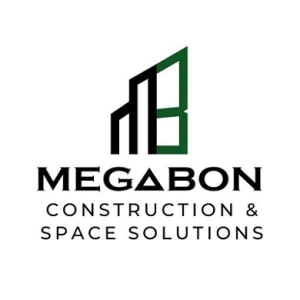Project Manager
Parañaque, National Capital Region
Posted more than 30 days ago
- Company:
- Construction Company
- Company Description:
- Industry: Nonresidential Building Construction , Lumber and Other Construction Materials Merchant Wholesalers , Construction of Buildings , Construction , Commercial and office building contractors
- Contract Type:
- Full Time
- Experience Required:
- 3 to 4 years
- Education Level:
- Bachelor’s Degree
- Number of vacancies:
- 1
Job Description
1. Project Planning and Scheduling
Develop and Review the Project Plan: Prepare detailed plans based on the project scope, budget, and schedule. Ensure these plans comply with local regulations, such as those set by the Philippine Contractors Accreditation Board (PCAB) and other relevant authorities.
Create the Work Breakdown Structure (WBS): Organize the project into smaller, manageable tasks for clear execution and monitoring.
Project Timeline: Establish timelines that align with guidelines, considering holidays and weather conditions.
Monitor and Update Schedule: Use local project management tools to ensure the project progresses according to the approved timeline, adjusting when necessary.
2. Budgeting and Cost Management
Prepare the Project Budget: Estimate costs for materials, labor, equipment, and overheads in accordance with Philippine construction standards and prevailing wage rates, as specified by the National Economic and Development Authority (NEDA).
Control Project Costs: Track expenses and ensure the project stays within the approved budget. If there are unforeseen costs, manage them within the approved contingency fund, as required by Philippine law.
Procurement Process: Comply with the Government Procurement Reform Act (RA 9184) in the selection of suppliers, contractors, and service providers, particularly for government projects.
3. Resource Management
Allocate Resources Effectively: Ensure that adequate personnel, equipment, and materials are available for the project according to the local workforce, equipment rental markets, and supplier capabilities.
Compliance with Labor Laws: Follow the Labor Code of the Philippines and other local regulations regarding wages, benefits, and working conditions for construction workers.
Health and Safety Compliance: Ensure workers' safety by enforcing safety protocols in accordance with the Occupational Safety and Health Standards (OSHS) of the Department of Labor and Employment (DOLE).
Environmental Considerations: Ensure compliance with environmental regulations, including those under Republic Act No. 9003 (Ecological Solid Waste Management Act) and other relevant laws.
4. Quality Control and Assurance
Compliance with National Standards: Ensure that the construction project meets the technical standards set by the National Building Code of the Philippines (NBCP) and any specific requirements by the Department of Public Works and Highways (DPWH).
Quality Inspections: Regularly inspect the construction work to verify that it adheres to project specifications and quality standards. This includes concrete pouring, welding, and structural integrity.
Corrective Actions: Address any deficiencies promptly to ensure the quality of the project is maintained and that it meets all safety and regulatory standards.
5. Risk Management
Risk Identification and Mitigation: Identify potential risks, such as delays, budget overruns, and safety hazards. Develop a risk management plan in compliance with the Philippine Disaster Risk Reduction and Management Act (RA 10121).
Insurance and Bonds: Ensure that the project is adequately insured, including contractor’s all-risk insurance (CARI), and performance bonds as required by the PCAB.
Emergency Preparedness: Ensure preparedness for unexpected events, such as natural disasters, and coordinate with local government units for disaster response protocols.
6. Stakeholder Communication
Regular Updates: Provide clear and timely updates to the project owner, clients, subcontractors, and stakeholders regarding project progress, issues, and any changes.
Engagement with Local Government Units (LGUs): Communicate with relevant LGUs to ensure compliance with local zoning, environmental, and traffic regulations.
Conflict Resolution: Act as the main point of contact for resolving any disputes that arise between contractors, subcontractors, and other project participants.
7. Contract Administration
Review and Manage Contracts: Ensure that contracts with suppliers, subcontractors, and workers comply with Philippine legal standards, including those set by the PCAB.
Ensure Compliance with RA 9184 (Government Procurement Reform Act): For government projects, ensure adherence to public bidding and procurement laws and procedures.
Variation Orders: Approve and manage change orders, ensuring they are properly documented and aligned with contract terms.
8. Health, Safety, and Environmental Management
Safety Protocols: Enforce the Occupational Safety and Health Standards (OSHS) and ensure all workers wear proper personal protective equipment (PPE).
Site Inspections: Conduct regular safety inspections and audits to ensure compliance with Philippine safety standards and environmental regulations.
Waste Management: Implement proper waste disposal measures in accordance with the Philippine Clean Air Act and Ecological Solid Waste Management Act.
9. Documentation and Reporting
Project Documentation: Maintain accurate records of all project activities, including contracts, inspections, permits, and approvals
Progress Reports: Prepare regular progress reports for stakeholders, which may include visual aids like photographs or video documentation for proper documentation of project stages.
Compliance Reporting: Submit reports for regulatory compliance as required by DPWH, DOLE, and other government agencies overseeing construction work.
10. Project Closeout
Project Handover: Ensure that the project is completed to the satisfaction of the client, and all necessary documentation (such as warranties, as-built drawings, and permits) are provided.
Final Inspection and Punch List: Ensure that any deficiencies identified during the final inspection are addressed before project completion.
Closeout Documents: Complete all final paperwork, including financial reports, to ensure all contracts are settled and the project can be officially closed.
The job listing you are looking for is no longer available. It may have expired or been closed after the position was filled. Please check our Available Jobs.


